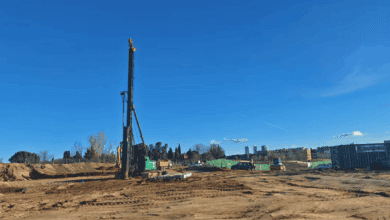
Court decision: new boundaries for homeowners’ associations
The Supreme Court of Spain (Tribunal Supremo) has handed down a ruling that changes the way residential complexes are managed and how expenses are shared among property owners. From now on, homeowners’ associations cannot independently introduce new payment schemes if these contradict the original rules set out in the urbanization’s founding documents. Any changes must be approved unanimously by all property owners, not just by the majority.
Background of the dispute: reason for reconsideration
The case began after heavy rains in 2017 sparked a dispute within a Spanish urbanization. The homeowners’ association demanded that certain owners cover part of the costs for road and driveway repairs, using its own calculation method based on building area rather than the official rules of the complex. Dissenting residents insisted that payments should only be made according to the share defined in the original bylaws, where land area—not the building—was used as the basis.
Court’s stance: protecting the interests of all owners
The civil division of the court sided with those who were not members of the association. It was noted that the decisions of private organizations cannot be imposed on those who are not members. An association is a private entity, and its internal rules are binding only on its members. It is not permissible to force someone to join the association or to apply its decisions to third parties, even if the majority of owners support such changes.
The significance of the regulations and requirements for changes
The Supreme Court emphasized that the original regulations of the urbanization determine how shared expenses are to be distributed, and this rule applies to all current and future property owners. Any modification is only possible with the unanimous consent of all owners, as these are fundamental principles of co-ownership. This approach is equivalent to the rules that apply to apartment buildings under the Ley de Propiedad Horizontal.
Implications for residential complexes across the country
The court’s decision applies to all private residential complexes and urbanizations, regardless of when they were established. Even if an association includes a majority of owners, its decisions cannot be binding for those who have not joined the group. In case of disputes over payment of expenses, only the rules set out in the complex’s regulations will apply. This ruling protects the rights of individual property owners and prevents potential abuses by private associations.
Clear distinction: association vs. homeowners’ community
The court also clearly distinguished between an association and a homeowners’ community. While an association is a voluntary group, a homeowners’ community operates according to the law and its regulations, which are binding for everyone. Therefore, any attempts by associations to impose their decisions on non-members are now officially recognized as illegal.
Impact on the real estate market
Experts point out that this Supreme Court ruling could influence how residential complexes are managed across Spain. Property owners now have additional assurances that their rights cannot be violated by private associations’ decisions. From now on, any changes to the payment procedure for shared expenses will only be possible with the unanimous agreement of all owners, making the system more transparent and secure.












